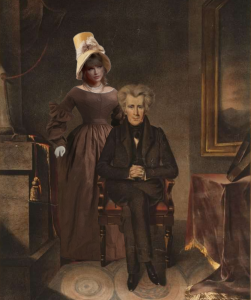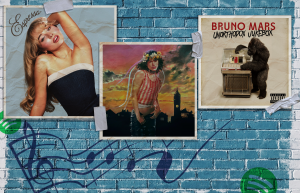Whether it’s tragedy or politics, news can sometimes make us sick to our stomachs.
Fortunately, there are journalists who know how to pick us up and be the medicine we need. No, this isn’t just reporting about cute cats. These journalists report the same news as every other outlet; however, there is a twist: they’re hilarious.
Satirical news takes a variety of forms. Whether it’s Alec Baldwin walking on stage at 10:30 p.m. dressed as the president, proclaiming, “live from New York, it’s Saturday night,” or Samantha Bee ranting about all the things she hates on any given day, we crave a comedic response to the world around us.
Often found on late night television slots, these platforms provide political and social commentary as well as opinion without censorship. They don’t hold back on language, but the kids should already be in bed, and if you’re truly offended, you can always flip over to the 700 Club.
Despite being in a field that historical figures such as Mark Twain and Ben Franklin participated in, the most iconic example of the field is former Daily Show host Jon Stewart. For 16 years, Stewart provided his viewers with a comedic summary of the news each day. He featured a cast of reporters – many of which now have their own shows, such as Samantha Bee and John Oliver.
But Stewart and those who followed in his footsteps have shown they are much more than just the comedic relief. Scholarly research shows that the Daily Show and other satirical news platforms actually inform their audiences of politics and current events, making them as relevant of a news platform as more traditional media.
The Daily Show challenged the notion that in order for the news to be comedic, it must be fake. It can be easy to write these platforms and their reporters off as comedians – and in some ways they are – however, that is doing an injustice to the important work they do. They just report the news in a different format.
Kevin Capie, instructor of journalism at Bradley, believes that while these platforms aren’t part of the traditional news cycle, they do relay information to those who may not pay attention to traditional news.
“What it does is, it brings news to people who may not have found it before,” Capie said. “Everybody’s like ‘Oh, I don’t pay attention to the news,’ but now that you have people like Oliver and Colbert out being entertaining about it, they’re seeing things they may not have seen before.”
However, when viewing or reading satirical journalism, it’s important that you pay attention to the publication. You don’t want to be that person who reads “The Onion” and shares it in outrage (we all know at least one person who does).
Sara Netzley, professor of journalism at Bradley, believes it’s also important to consider that this genre contains mostly opinion, as they will often target political ideologies or policies.
“If someone’s only source of news is satire, that’s a problem,” Netzley said. “But if The Daily Show or Samantha Bee are part of a well-rounded media diet that includes reputable sources, I think satire can be a great way to blow off steam or enjoy commentary on absurdities in the news.”
Netzley stressed the importance of understanding what you’re taking in when watching these satirical programs.
“As long as everybody’s clear that they’re getting information that might be factual but isn’t presented with full context or in a non-exaggerated way, it’s all good.”
The 24-hour news cycle that we have come to expect from news platforms has done a great job of making us feel overwhelmed by all the information available and making it difficult to tell its importance. That’s why it’s great to have platforms like the Daily Show, Full Frontal and the Weekend Update; they have the ability to inform their audience of current events through the appeal of comedy.
Whether it’s politics or current events, choosing satirical journalism can change your overall viewing experience, allowing you to be more informed on the world you live in by causing you to laugh until tears come running out.




